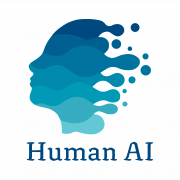The use of personality tests
Any professional involved in human development knows that people and their contexts interact. They are not separate entities, nor are they separable. Although the use of tests allows obtaining baseline data, they are only a tool for decision making; they are necessary, but not sufficient.
Relevance of the use of tests
Tests are used to evaluate different aspects of people’s behavior, cognition and personality. These tests are administered in different contexts, such as clinical, educational, labor, among others.
Their use is really significant because it allows professionals dealing with people to obtain objective and accurate information about the person to be evaluated. These tests are designed to evaluate specific aspects. They are standardized, which means that they have been tested on a large sample of people to ensure their reliability and validity.
One example is the International Personality Item Pool Five Factor Model (IPIP-FFM), an open-access personality test that measures the five personality factors and more than 250 scales.
The results of the tests are subsequently used to make decisions in different contexts: personnel selection, evaluation of skills and aptitudes, diagnosis and even in the treatment of mental disorders.
Limitations
Although they are relevant and useful for getting to know the student, the patient, the candidate… in short, the person to be evaluated, tests also have their limitations. In the article “The use and misuse of personality tests“, Datner provides a critical view.
Regardless of their validity, the author calls for caution. He warns of the risks of a possible attribution error, resulting from the predominance of both individual dispositions – such as the person’s emotional state, self-perception or social desirability bias – and ignorance of situational factors.
“If organizations decide to use these tests, they need to balance considerations of individual dispositions with consideration of situational variables.”
When conducting “self-report” analyses, let us not forget the fallacy of personal validation or the “Forer Effect” that Paul Meehl, one of the great clinical psychologists of the 20th century, called the “Barnum Effect“: accepting vague and general personal descriptions as uniquely applicable to ourselves, without realizing that the same description could be applied to anyone.
Personality in scientific context
With “Strong Evidence on Soft Skills“, Heckman (Nobel Prize 2000) and Kautz demonstrated that personality traits predict and cause outcomes. Today science has shown that personality is a critical factor for multiple milestones in life. As much as cognitive skills or technical knowledge (or even more); and, moreover, it is malleable.
Among the personality assessment models, the OCEAN model is the only one on which there is a worldwide scientific consensus, and therefore, it is used in the educational, occupational and therapeutic fields, and is linked to social-emotional competencies or softskills.
In conclusion…
Assessment through testing can be, and is, a very useful tool for human development. At the same time, it is important to use reliable tests and assessments to ensure that the results are accurate and useful for the professional. The data obtained must be complemented with evidence and direct observations of the person in order to make good decisions in a professional context.
If you work for the evaluation, assessment and development of people request our free demo: 👉🏼 tu-demo.humanaitech.com





